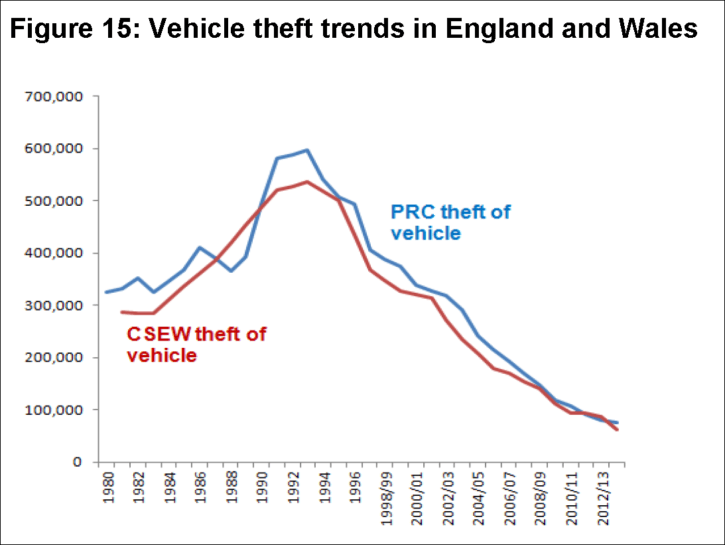This is my last post in a short blog series dedicated to Tom Gash’s new book “Criminal” which sets out to debunk some of our most common myths about crime.
Myth: We need radical reforms to reduce crime
Gash starts his deconstruction of this topic by looking at the extreme responses which governments often implement to tackle a new form of crime or an upsurge in violence.
He unpicks the failure of many of these, particularly the excessively punitive sentencing regimes which have left the US and the UK with such large and expensive prison populations which we are currently trying to reform as we finally (more or less) acknowledge that the continued fall in crime appears to be almost entirely unrelated to the rise in incarceration.
Instead, he looks at three different crime problems and the different, often quite low-key approaches which successfully tackled them.
Metal theft
The soaring price of metal in the mid-2000s resulted in a surge in metal thefts across many countries. The thefts caused major problems — damaging essential infrastructure like railways; destroying public art for good (it is estimated that a Henry Moore sculpture worth £3million was chopped up and sold for £1,500) and making the streets of Kosovo unsafe as manhole covers were repeatedly stolen.
The solution was not increased penalties for metal theft, target hardening or extra police controls. Rather, a more bureaucratic approach proved effective:
- Scrap metal dealers were required to make payments electronically, not in cash, so that there was a record of all sellers.
- Sellers were required to show ID and dealers to retain records of transactions for 3 years and the metal itself for at least 72 hours.
- All scrap metal dealers were required to be licensed by local authorities and those that didn’t were liable for a £5,000 fine — and those who already had convictions relating to metal theft were not licensed in the first place.
The number of metal thefts fell rapidly as it required too much time and effort to make any profit from the activity.
Car thefts
This is a subject previously covered by this blog. Car theft fell in many countries simply because car manufacturers introduced a wave of security devices in the 1980s and 1990s including central locking, car alarms and, most importantly, electronic immobilisers. In the UK, the government launched the first Car Theft Index rating the cars that were most frequently stolen. Publicised by Which? this quickly ensured that manufacturers prioritised car security for the first time.

Night-time violence
Gash also discusses the work of Jonathan Shepherd, a maxillofacial surgeon in Cardiff who got frustrated by the number of serious injuries he was treating which were caused by the use of pint glasses as weapons.
He pioneered the introduction of tempered glass which did not shatter and which, though more expensive, was cost effective because it lasted longer. His initiative was supported by the local authority which used licensing laws to require pubs and clubs to use the new safer glasses.
Serious injuries decreased although the number of assaults did not. This motivated Professor Shepherd to go further and initiate an information sharing protocol which allowed hospitals, police and licencees to share information about where violence was occurring. This resulted in a number of evidence-based strategies which included staggering opening hours and making sure police, CCTV and paramedics were all concentrated on the high risk areas.
Conclusions
Gash’s overall conclusion is that crime is a slippery subject and not susceptible to simple explanations in terms of either its causes nor in the most effective responses.
Despite all the media coverage and call for more bobbies on the beat, harsher sentencing, better parenting and less inequality; it’s a sobering thought that licensing scrap metal dealers and an information sharing agreement were more effective.
You can follow Tom on Twitter @Tom-Gash
Parole Board opportunities
Looking for interesting part-time work. Parole board is looking for new independent, psychiatrist & psychologist members. Check out this ad on my Jobs Board – closing date 8 June 2016.


